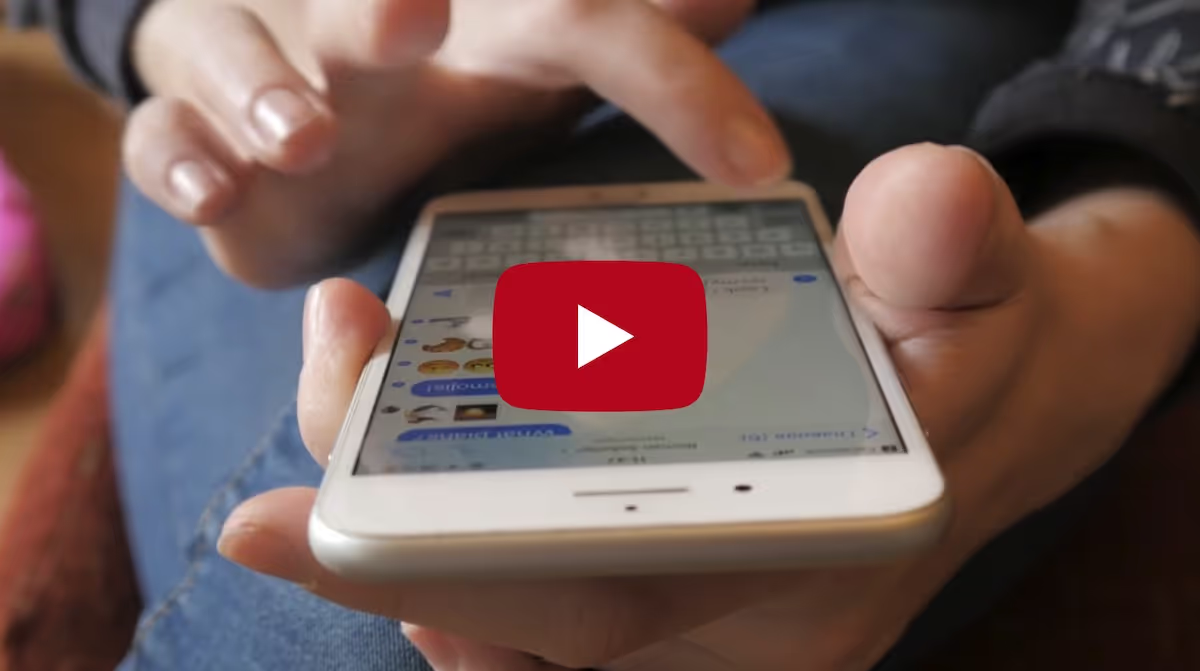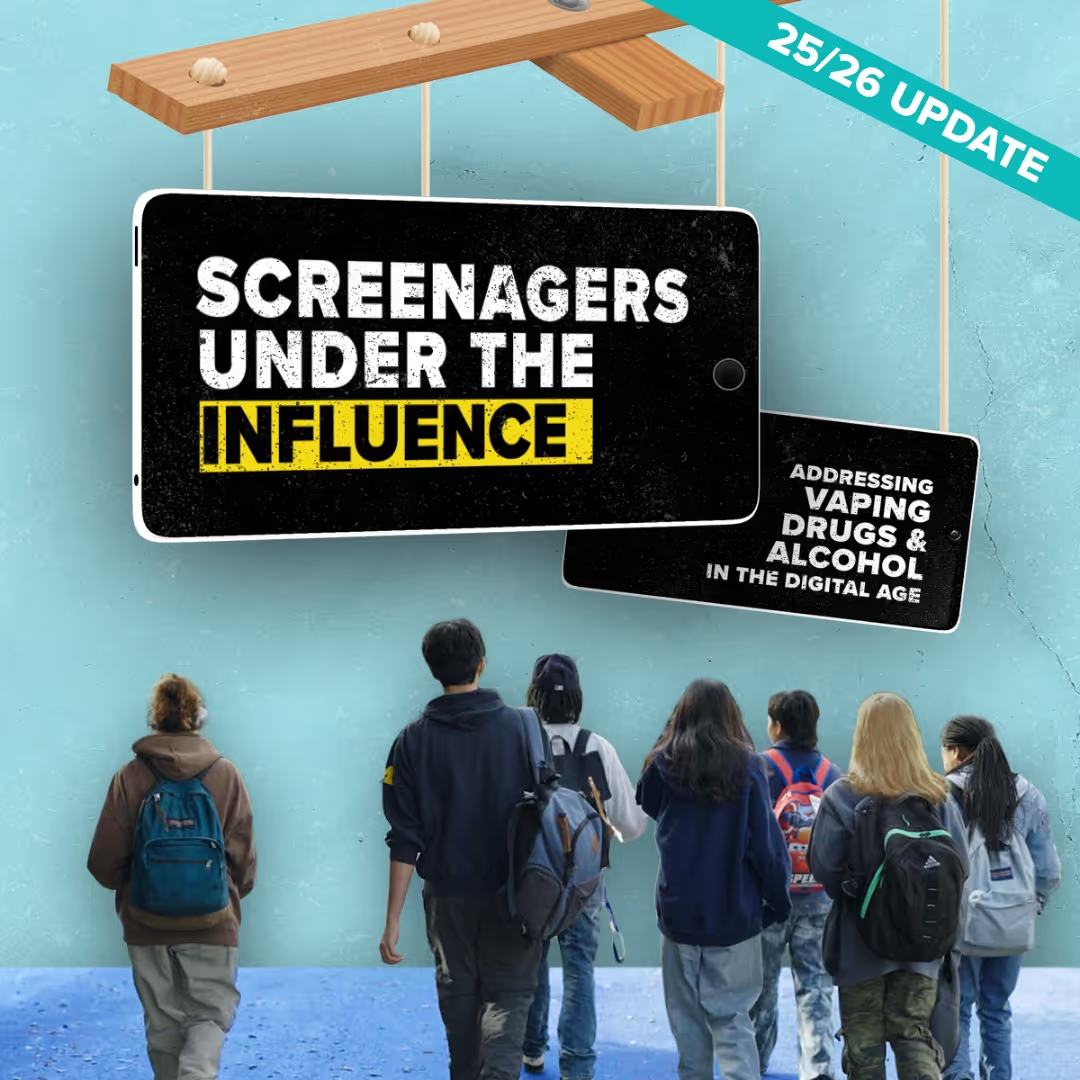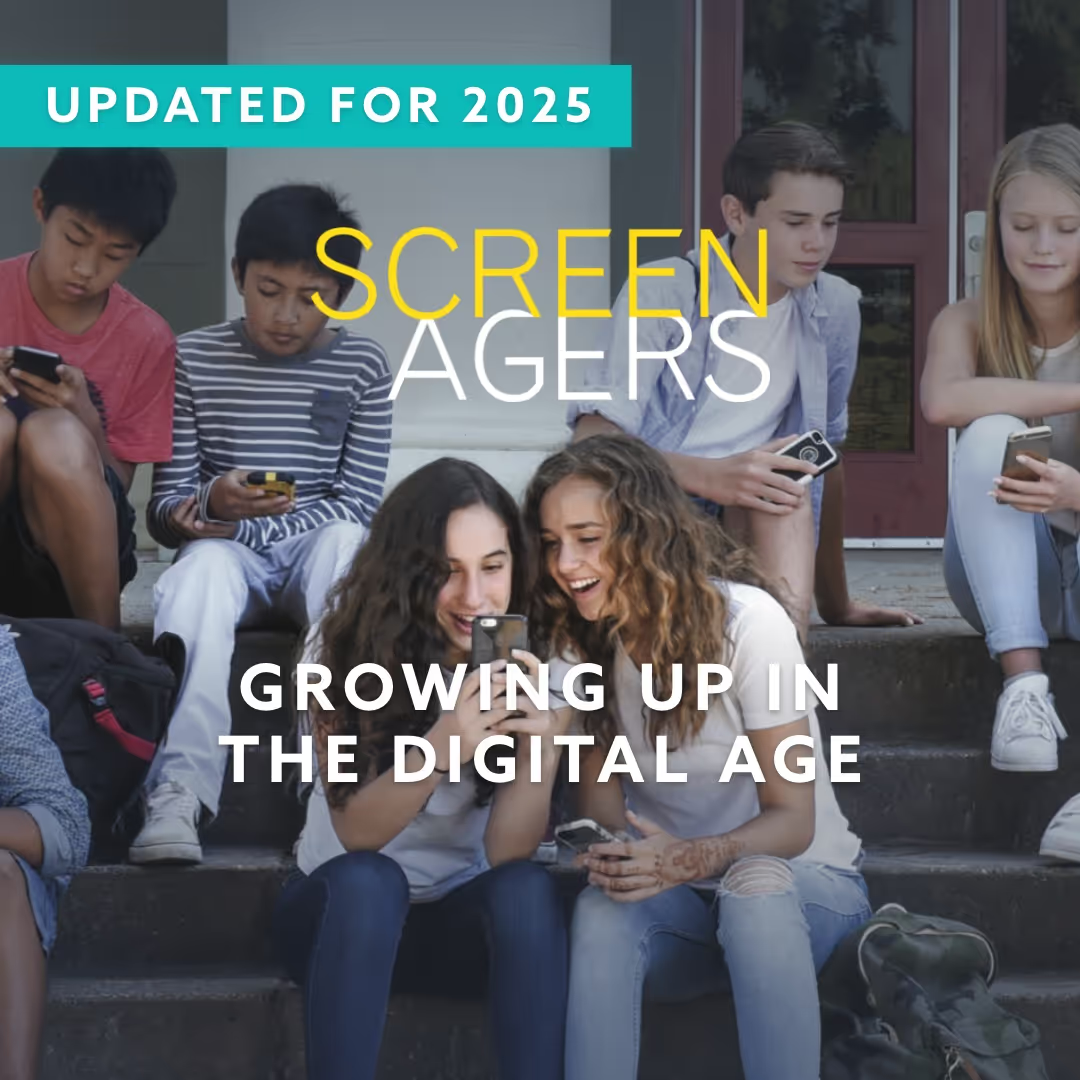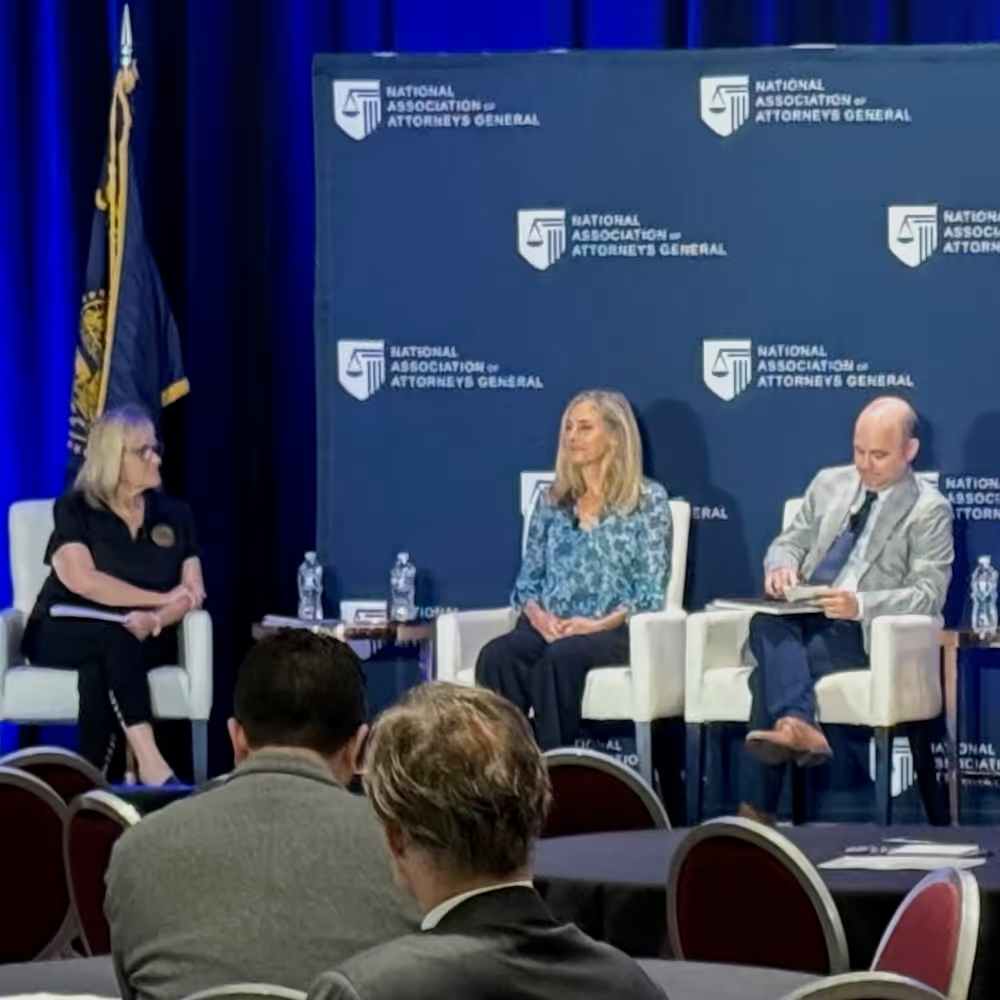


We recently launched the Screenagers YouTube Channel where we will be uploading a range of new content and resources each week, such as movie clips, podcasts, and other original content. I wanted this week to introduce you to the first regular feature on the channel — Screenagers Bites!
In making our trilogy of movies, we recorded over 3000 hours of interviews with our subject matter experts. So many great insights and so little movie to fit them all into. Through the Screenagers Bites on YouTube, we now have a place where we can bring these valuable resources to you, our community.
For this weeks TTT, I wanted to showcase an initial selection of these bites to you, and let you know that you can expect many more of these on the channel in the coming weeks. If this would be of benefit to you, I'd ask you to visit our YouTube channel and subscribe to get them directly into your feed there.
Learn more about showing our movies in your school or community!
Join Screenagers filmmaker Delaney Ruston MD for our latest Podcast

Learn more about our Screen-Free Sleep campaign at the website!
Our movie made for parents and educators of younger kids
Learn more about showing our movies in your school or community!
In this bite, Delaney looks back on advice from Laura Kastner, an adolescent psychologist and author, who shares strategies for helping youth manage their media intake. She emphasizes the importance of developing skills beyond social media, such as having conversations, handling power, and being a leader.
As part of an insightful interview with Sherry Turkle, author of 'Reclaiming Conversation', she discusses the impact of digital devices on relational connections within families. Turkle expresses concern that phones often distract us from meaningful family connections.
In an interview with psychologist Larry Rosen, he suggests parents should try to understand the digital world their kids operate in. Rosen's advice to parents is to learn from their kids, asking them about the different social media platforms they're using and how they function.
In this bite, we explore the topic of childhood anxiety with psychologist and author Lynn Lyons, discussing novel ways for parents to help their anxious children. Demonstrating a shift in approach from mere comfort to teaching kids to face their fears through exposure therapy.
Learn more about showing our movies in your school or community!
Join Screenagers filmmaker Delaney Ruston MD for our latest Podcast

Learn more about our Screen-Free Sleep campaign at the website!
Our movie made for parents and educators of younger kids
Join Screenagers filmmaker Delaney Ruston MD for our latest Podcast
Delaney interviewed education specialist Brad Brown, offering insights into his work in creating supportive learning environments. He discusses the necessity for all students to freely express their emotions, and delves into outdated notions of masculinity.
In this bite, adolescent psychologist Lizz Dexter-Mazza discusses the DBT skill of "Opposite Action" and how it can help manage intense emotions. Lizz explains it involves doing the opposite behavior of what your emotion wants you to do and identifies the benefits in helping her teen patients.
Delaney introduces a snippet from her interview with Larry Rosen, the author of The Distracted Mind, discussing consequences for breaking screen time rules for kids. Larry covers the idea of implementing small consequences for rule transgressions, while emphasizing the importance of positive reinforcement.
I'd encourage each of you to share these resources among your families and community to help spark meaningful conversations.
Finally, a gentle reminder/request from me, that not only does subscribing to the Screenagers YouTube channel, ensure you get new videos from us directly into your feed, but it really helps our reach on YouTube and helps empower us to spread our message far and wide.
As we’re about to celebrate 10 years of Screenagers, we want to hear what’s been most helpful and what you’d like to see next.
Please click here to share your thoughts with us in our community survey. It only takes 5–10 minutes, and everyone who completes it will be entered to win one of five $50 Amazon vouchers.
We recently launched the Screenagers YouTube Channel where we will be uploading a range of new content and resources each week, such as movie clips, podcasts, and other original content. I wanted this week to introduce you to the first regular feature on the channel — Screenagers Bites!
In making our trilogy of movies, we recorded over 3000 hours of interviews with our subject matter experts. So many great insights and so little movie to fit them all into. Through the Screenagers Bites on YouTube, we now have a place where we can bring these valuable resources to you, our community.
For this weeks TTT, I wanted to showcase an initial selection of these bites to you, and let you know that you can expect many more of these on the channel in the coming weeks. If this would be of benefit to you, I'd ask you to visit our YouTube channel and subscribe to get them directly into your feed there.
In this bite, Delaney looks back on advice from Laura Kastner, an adolescent psychologist and author, who shares strategies for helping youth manage their media intake. She emphasizes the importance of developing skills beyond social media, such as having conversations, handling power, and being a leader.
As part of an insightful interview with Sherry Turkle, author of 'Reclaiming Conversation', she discusses the impact of digital devices on relational connections within families. Turkle expresses concern that phones often distract us from meaningful family connections.
In an interview with psychologist Larry Rosen, he suggests parents should try to understand the digital world their kids operate in. Rosen's advice to parents is to learn from their kids, asking them about the different social media platforms they're using and how they function.
In this bite, we explore the topic of childhood anxiety with psychologist and author Lynn Lyons, discussing novel ways for parents to help their anxious children. Demonstrating a shift in approach from mere comfort to teaching kids to face their fears through exposure therapy.
Delaney interviewed education specialist Brad Brown, offering insights into his work in creating supportive learning environments. He discusses the necessity for all students to freely express their emotions, and delves into outdated notions of masculinity.
In this bite, adolescent psychologist Lizz Dexter-Mazza discusses the DBT skill of "Opposite Action" and how it can help manage intense emotions. Lizz explains it involves doing the opposite behavior of what your emotion wants you to do and identifies the benefits in helping her teen patients.
Delaney introduces a snippet from her interview with Larry Rosen, the author of The Distracted Mind, discussing consequences for breaking screen time rules for kids. Larry covers the idea of implementing small consequences for rule transgressions, while emphasizing the importance of positive reinforcement.
I'd encourage each of you to share these resources among your families and community to help spark meaningful conversations.
Finally, a gentle reminder/request from me, that not only does subscribing to the Screenagers YouTube channel, ensure you get new videos from us directly into your feed, but it really helps our reach on YouTube and helps empower us to spread our message far and wide.
Sign up here to receive the weekly Tech Talk Tuesdays newsletter from Screenagers filmmaker Delaney Ruston MD.
We respect your privacy.
We recently launched the Screenagers YouTube Channel where we will be uploading a range of new content and resources each week, such as movie clips, podcasts, and other original content. I wanted this week to introduce you to the first regular feature on the channel — Screenagers Bites!
In making our trilogy of movies, we recorded over 3000 hours of interviews with our subject matter experts. So many great insights and so little movie to fit them all into. Through the Screenagers Bites on YouTube, we now have a place where we can bring these valuable resources to you, our community.
For this weeks TTT, I wanted to showcase an initial selection of these bites to you, and let you know that you can expect many more of these on the channel in the coming weeks. If this would be of benefit to you, I'd ask you to visit our YouTube channel and subscribe to get them directly into your feed there.

I am super happy to share the news that our film, Screenagers Under the Influence: Addressing Vaping, Drugs, and Alcohol in the Digital Age, has been updated by the Screenagers team and I. In today's blog, I'll talk a little about this update, along with sharing a quick true or false quiz you can use to bring up substances and alcohol with your tweens and teens.
READ MORE >
We are thrilled to announce the newly updated version of our groundbreaking original film, Screenagers: Growing Up in the Digital Age. Award-winning and thought-provoking, the film is now more relevant than ever. The updated film features fresh insights, including from Jonathan Haidt, author of Anxious Generation, and several others.
READ MORE >
We all want good news — contrary to mainstream news, which focuses on all that is going wrong, we humans want and need a healthy dose of daily good news, right? I bet you agree, and thank you for reading this blog, which is focused on good news (including news about love). A week ago, I was on a stage, on a panel, in front of many Attorney General at their yearly national conference, and I said these words: “I am optimistic.”
READ MORE >for more like this, DR. DELANEY RUSTON'S NEW BOOK, PARENTING IN THE SCREEN AGE, IS THE DEFINITIVE GUIDE FOR TODAY’S PARENTS. WITH INSIGHTS ON SCREEN TIME FROM RESEARCHERS, INPUT FROM KIDS & TEENS, THIS BOOK IS PACKED WITH SOLUTIONS FOR HOW TO START AND SUSTAIN PRODUCTIVE FAMILY TALKS ABOUT TECHNOLOGY AND IT’S IMPACT ON OUR MENTAL WELLBEING.
